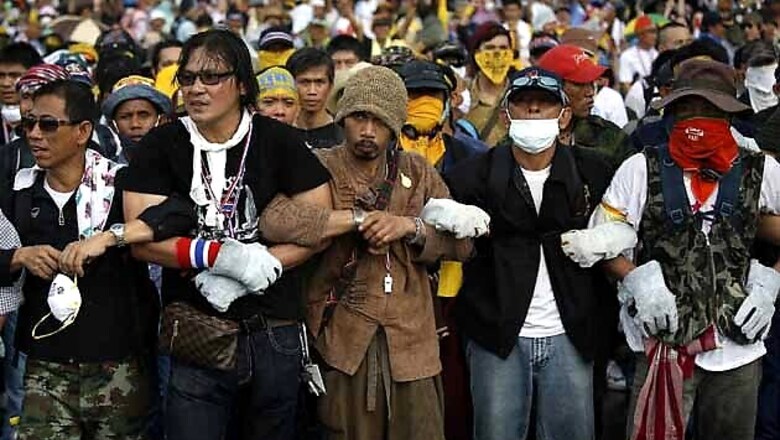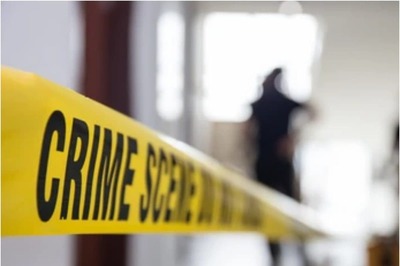
views
Thailand on Tuesday imposed a 60-day state of emergency in the capital and surrounding areas to quell violent anti-government protests aimed at forcing embattled premier Yingluck Shinawatra from office.
"The cabinet decided to invoke the emergency decree to take care of the situation and to enforce the law," Deputy Prime Minister Surapong Tovichakchaikul said. The measure will come into force from Wednesday, officials said.
The emergency decree gives security agencies the power to impose curfew, search, detain and arrest suspects without charge, censor media, ban political gatherings of more than five people and declare parts of Bangkok off-limits.
Caretaker Labour Minister Chalerm Yoobamrung said on TV that the government had to invoke the emergency decree because anti-government protests had turned violent. He said demonstrations were not peaceful as claimed by the leaders of the People's Democratic Reform Committee (PDRC), the anti-government movement.
The decree came after weeks of mass rallies in Bangkok that sparked several bouts of violence, including grenade attacks and shootings that the protesters and the government blamed on each other. Protesters, who have vowed to topple the Yingluck regime, have prevented officials from going to work by blockading parts of the city as they intensified their months-long agitation last week.
The opposition Democrat Party, which supports the protests, has said it will boycott the February 2 snap polls called by Yingluck in a bid to end the unrest. The Election Commission wants the polls to be postponed. PDRC leader Issara Somchai said the movement would continue its simultaneous rallies in Bangkok despite the state of emergency.
"The emergency decree cannot overrule the people's constitutional rights." Issara said the protests had so far caused no damage that warranted the emergency. Protesters last week stepped up their campaign by launching a "shutdown" of the capital, blockading major roads and occupying ministries in Bangkok.



















Comments
0 comment